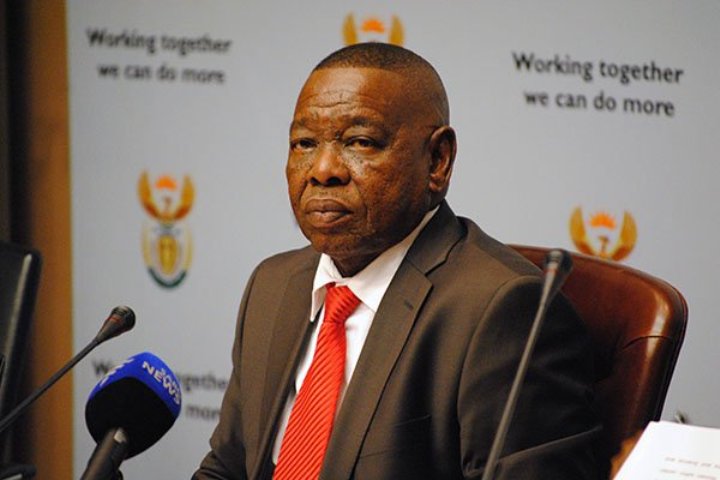Multimodal teaching only way to learning can take place in COVID context
“Multimodal teaching, learning and assessment is not an option for universities and Technical Vocational Education and Training (TVET) colleges any more -- it is a necessity,” said the Minister on Wednesday.

- Country:
- South Africa
Higher Education, Science and Innovation Minister, Dr Blade Nzimande, says multimodal teaching is the only way continued learning can take place in the COVID-19 context.
“Multimodal teaching, learning and assessment is not an option for universities and Technical Vocational Education and Training (TVET) colleges any more -- it is a necessity,” said the Minister on Wednesday.
At a media briefing on the latest developments in the sector, Nzimande said players in the Post School Education and Training (PSET) space are embracing the principles of open learning, as outlined in current PSET policies.
The Higher Education and Training Department has started with some initiatives, including giving laptops and data to students and developing high-quality connectivity for all universities and TVET colleges, in collaboration with the Department of Science and Innovation, and the South African National Research Network (SANREN).
“The CSIR [Council for Scientific and Industrial Research] has briefed me on its work on geo-spatial mapping to try to assist with the location of university and TVET student homes, in relation to areas of connectivity in our country,” Nzimande said.
Nzimande encouraged all institutions in common localities and working in the same areas to work with each other, including public and private enterprises, social structures, local and district, and provincial government to create a responsive education and development opportunities.
“We have to think about sharing learning and teaching materials and support the open educational resource (OER) movement. We have to share infrastructure, expertise and systems.”
Nzimande thanked the Department of Communications and Digital Technologies, and electronic network providers, including mobile network operators, which have already zero-rated educational content sites of public universities, TVET, CET (Community Education and Training), as well as agricultural and nursing colleges.
Over 500 educational sites zero-rated
The Minister said currently, there are 592 educational sites (96) that are zero-rated.
“Most universities have already negotiated free data bundles with mobile network operators (MNOs) to pay for additional content that is not covered through the zero-rating.
“We have negotiated with all mobile network operators very favourable rates for our National Student Financial Aid Scheme (NSFAS) and Funza Lushaka students for 10GB daytime and 20GB night time data for three months.
“I have received very positive reports from institutions on the uptake and application of these bundles. However, I urge MNOs to fast-track these bundles to students,” Nzimande said.
The reiterated that the mobile data must be used for dedicated online educational platforms for teaching and learning, as approved by institutions.
“We have also made free digital content available to specifically our TVET college students through our Higher Education and Training website, the National Open Learning System (NOLS) of the department, institutional websites and other sites, where students can find digital materials to access, to assist them in their learning and preparation for exams,” Nzimande said.
Return to campus
On the phased return of students, Nzimande said, to date, 20 universities have welcomed students back onto their campuses and residences.
The gazette providing the directions on the criteria for the return to campus was published on 8 June 2020.
“As we speak, all public universities have provided plans and are managing permits for identified students to return. Private higher education institutions have also provided plans. All our universities have provided the dates for the planned return of students, in line with their risk-adjusted strategy linked to the situation in their localities.
“All universities continue to support their other students through remote multimodal teaching, learning and assessment strategies and plans. The planned and staggered return of the remaining 33% of students to campuses is taking place over a period from 17 June, when the first students arrived at some universities, until late August, by which time the full 33% will have been reintegrated into campuses across the country,” Nzimande said.
(With Inputs from South African Government Press Release)
- READ MORE ON:
- Dr Blade Nzimande
- COVID-19
- South African National Research Network
- CSIR
- PSET
ALSO READ
My taxable income plummeted to Rs 680 in 2021-22 due to Covid-19 losses: BJP's Chandrasekhar
Report of workshop on COVID-19 vaccine strain updates held by ICMRA-WHO published
SC adjourns for July Ramdev's plea for clubbing of FIRs on his remarks on efficacy of allopathy to cure Covid-19
**Updated Headline:** **Secure Your COVID-19 Vaccine Certificate: A Comprehensive Guide to Download from Co-WIN, UMANG, and Aarogya Setu**
GlaxoSmithKline sues Pfizer and BioNTech over Covid-19 vaccine technology










